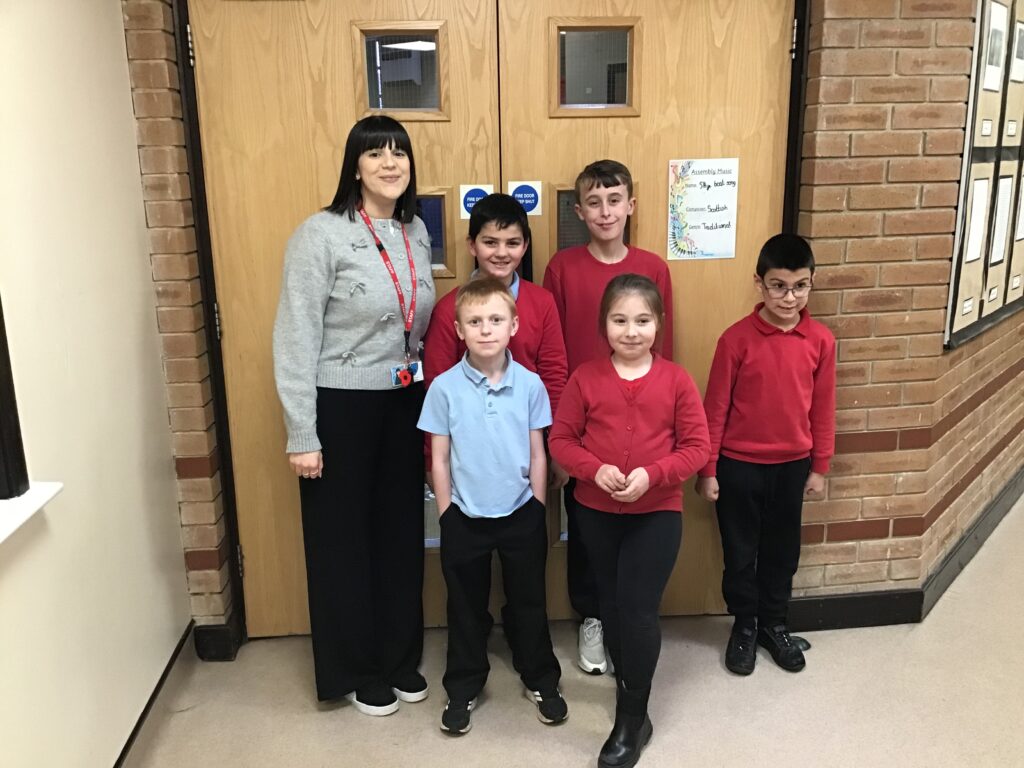Firthmoor’s Curriculum Team for Science 2025-26

Miss Jamieson (Year 6 teacher)
Oliver (Year 6)
Rio (Year 5)
Tommy (Year 4)
Oliwia (Year 3)
Zakaria (Year 2)
At Firthmoor Primary School, Science is taught in discrete, weekly lessons from Year 1 to Year 6, following the National Curriculum. Scientific enquiry is central to our approach, with pupils developing ‘working scientifically’ skills through investigations such as observing over time, pattern seeking, classifying, fair testing and researching using secondary sources. Children learn to communicate their ideas confidently using a range of formats, including written explanations, labelled diagrams, drawings, tables and charts.
To secure scientific knowledge, pupils regularly revisit key learning, and each lesson begins with retrieval activities to strengthen recall. Vocabulary is explicitly taught and reinforced, with key terms linked to each topic and to working‑scientifically skills. Children also access a range of scientific magazines and non‑fiction texts to deepen their understanding and broaden their scientific curiosity.
Science in Early Years
In the EYFS, much of children’s early Science learning sits within Understanding the World. Scientific enquiry is driven by children’s curiosity and supported through purposeful adult-led provocations. Pupils are encouraged to notice similarities and differences, explore their environment, observe living things, and talk about changes they see, developing early skills in questioning, observing and explaining.
Please see below our Science curriculum.


